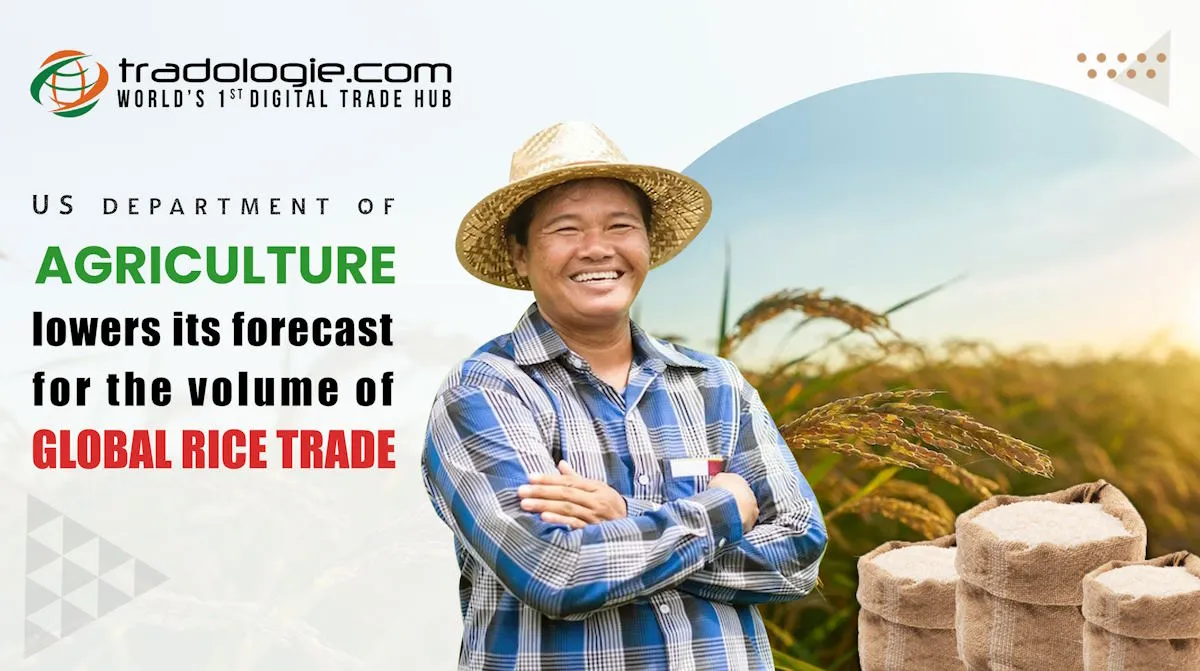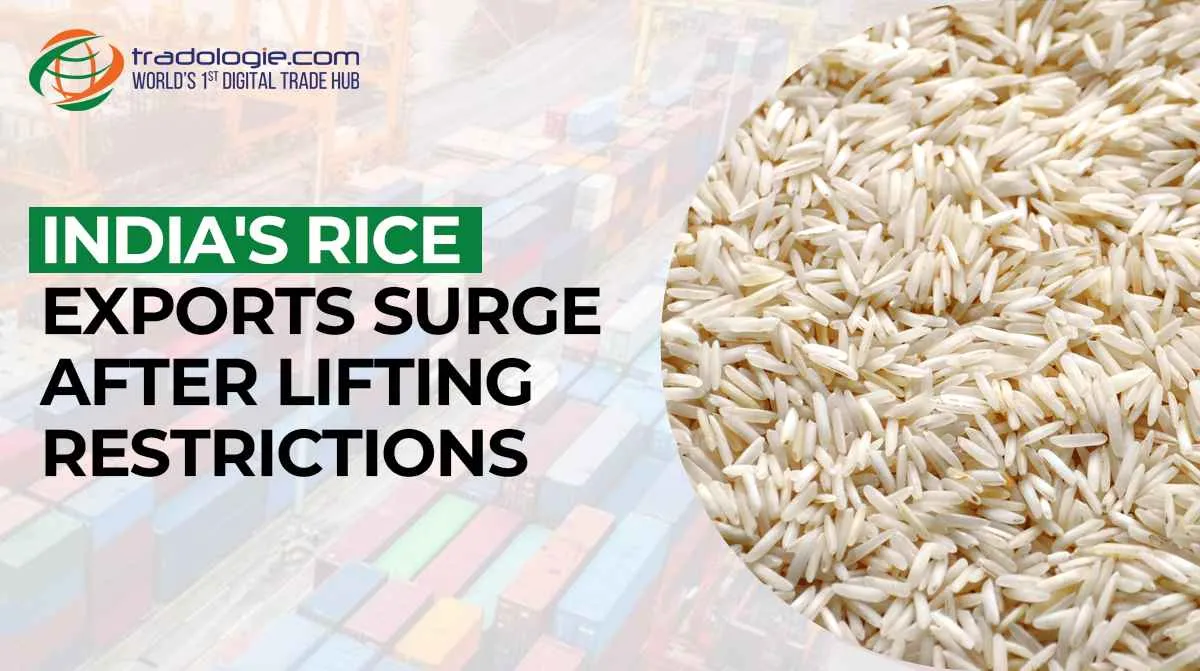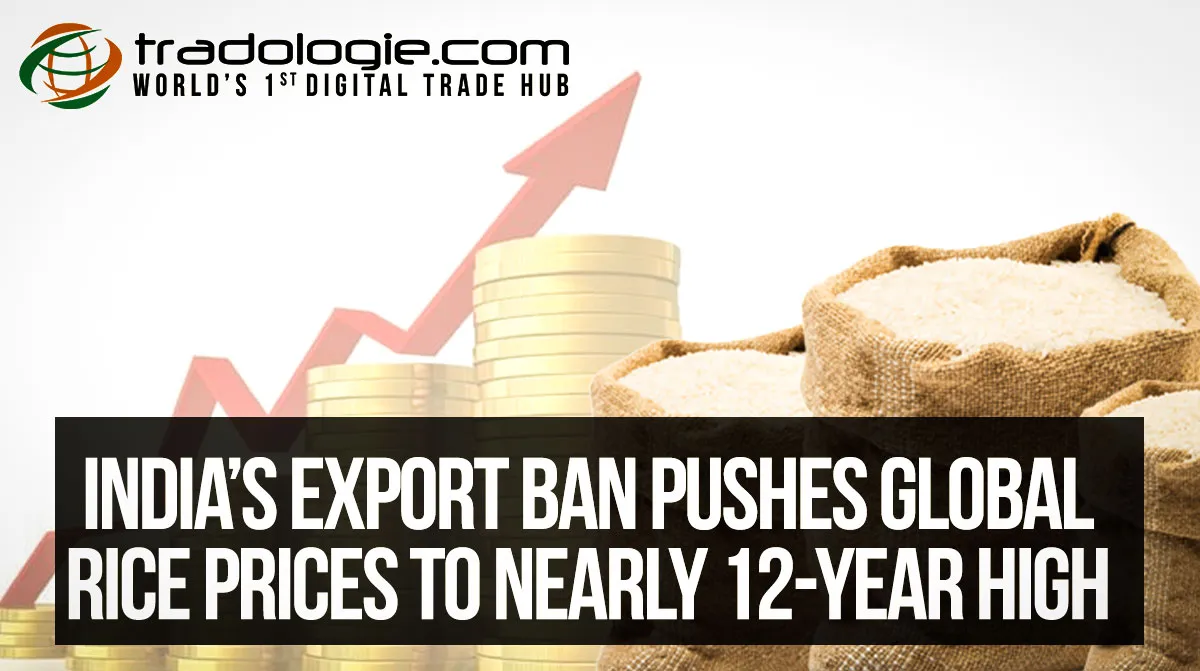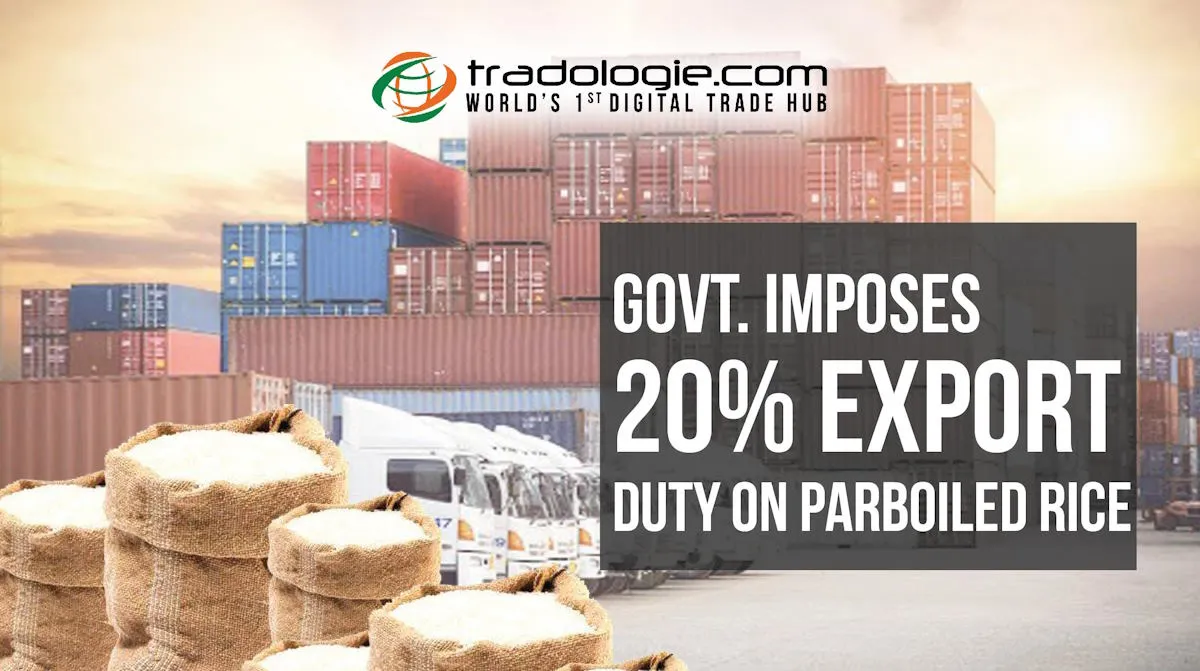Located in Asia, India is the largest rice exporter in the world and the country ranks second, behind China in terms of rice production. Different varieties of rice are shipped by the Asian nation all year round and India holds a dominant position in the global rice trade. Favorable weather conditions help India export bulk rice and meet global rice demand; however, things are different this time around.
While late arrival of monsoon has led to significant deficit up to middle of June and have hampered the paddy sowing process in the states of Karnataka, West Bengal, Chhattisgarh, Tamil Nadu, and Andhra Pradesh, recent rainfall have flooded the paddy fields in the states of Punjab and Haryana.
Owing to these, the prices of the staple have been on rise recently and in a move to control the rising prices of rice in the domestic markets of the country, the Government of India have banned the exports of non-basmati (white rice) with immediate effect.
DGFT’s Notification
Taking the entire global rice market by surprise, the Directorate General of Foreign Trade (DGFT) on 20th July, 2023 issued a notification which read “non-basmati white (raw) rice (semi-milled or wholly milled rice, whether or not polished or glazed) has been shifted to the prohibited list.”However, the notification made clear that non-basmati rice shipments will still be allowed on G2G basis and on the basis of government requests to help countries meet their food security needs.
Mixed Market Sentiments
The DGFT’s notification had immediate impact on the global market as Chicago Board of Trade rice futures rose over 1 per cent for September and November contracts in early trade.However, domestic rice traders were disconcerted by the GOI’s move. “It is painful. Will request the Government to reconsider (the decision) as soon as situation improves,” said B V Krishna Rao, President of The Rice Exporters Association of India (TREA).
Mr. VR Vidya Sagar, Director of Bulk Logix said that the ban could be a short-term measure for 4-6 months, a move by the government to control prices due to shortfall of the crop in Punjab and Haryana.
Trade analyst, Mr. S Chandrasekaran hailed the Government of India’s move terming it as a timely one to combat inflation and protect food security. He dispelled the fears that India will not lose its number one position in the global market as it is driven by price competitiveness. It would come back to the top spot easily whenever the GOI decides to review its policy.
The Bottom Line
In a move to tame inflation and ensure food security, the Government of India have banned the exports of non-basmati white rice with immediate effect.If you are a raw rice exporter outside India, you can grow your rice exports via Tradologie. Tradologie is World’s First Digital Trade Hub with a global buyer base of 600,000+ from over 85 countries and you can grow your rice business with the platform with ease.
To register as a buyer, click here . To register as a seller, click here .
To stay updated with the latest happenings of agro-trade industry, follow Tradologie.com across all social media channels.





